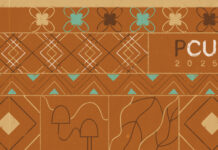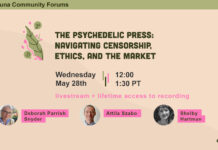- Love and Psychedelic Psychotherapy: Bridging the Divide - February 25, 2021
- Ayahuasca and the Power of Forgiveness - December 14, 2016
- Love and Psychedelic Psychotherapy: Bridging the Divide - February 25, 2021
What is Love?
There is incredible potential for the psychedelic renaissance to rehabilitate and revitalize the concept of love in psychotherapy and beyond. But what is love? For centuries, people interested in every form of knowledge—from artists to philosophers, scientists, and sages—have made attempts to define love, a concept that varies across historical periods and cultures. Bill Richards observed that “the challenge here may be one of language and the many different meanings the word “love” has for different people—sort of like the word ‘God’” (W. Richards, personal communication, August 31, 2020). The steady love of a parent is different than the love felt between partners, lifelong friends, and different still from the communion one feels among others called to ceremony. We sing songs of love to the land we call home, to the mystery we come from, and the wonder to which we will return.
It is no surprise, then, that psychedelics, with their activation of deeply healing intelligent capacities, seem to spontaneously engender internal and interpersonal experiences of love.
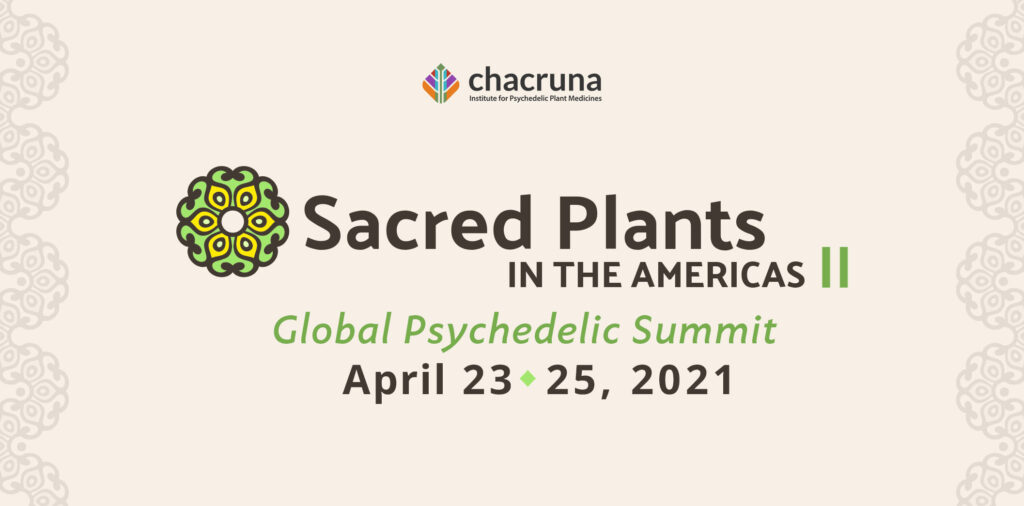
Join us at Sacred Plants in the Americas II
Love in Psychotherapy
When we are unable to love, or have lived lives bereft of love, we suffer. We turn to trusted others to find our way towards the connection that keeps us alive. Likewise, a primary focus of psychotherapy has been to help clients heal from a lack of love and cultivate the capacity, courage, and freedom to love themselves and others. The vocabulary of therapy is also rich with terms of what heals, from the “holding container,” to “validation,” and “unconditional positive regard,” a euphemism for love and a powerful energy thought to create the best possible conditions for healing and growth. It is no surprise, then, that psychedelics, with their activation of deeply healing intelligent capacities, seem to spontaneously engender internal and interpersonal experiences of love. However, when conducting an electronic database search on the scientific literature relating to psychedelics, only one peer-reviewed article in the past 50 years included the word “love” in its title, and this in reference to a song. Love wasn’t on the index in Michael Pollan’s ground-breaking book, How to Change Your Mind, yet love is in his pages. In his account of his journey with psilocybin, Pollan describes encountering “a cascading dam break of love.” The author goes on to admit, “it embarrasses me to write these words; they sound so thin, so banal…love is everything” (p. 250 – 251). Across a myriad of medicines, people from all races, genders, classes, and diversities reach for a word to describe an experience that changes their life, and they find the word “love.” And so, what is the distance that divides the work of healing from the language and study of love?
The Shadow of Love
Some may say that the separation of healing and love was a necessary boundary. The history of love across its many domains is fraught with misdeed, violence, and abuse. The idea of love has been used for colonial violence, subjugated by racism and sexism, commodified by economic forces and distorted by the effects of intergenerational trauma. A clinician who avoids referencing the nature of love in therapy with their client—including in the space between them—may be doing so to avoid potential misunderstanding or boundary violations, or for fear of invalidating their trauma history. And, though their efforts may be well-intentioned, in the balance of trauma and recovery, the force that guides the healing of therapy waits to be named.
We share these thoughts as an invitation, a call to action, even, to make a priority the study of love in psychedelic-assisted psychotherapy; from medicine-induced experiences of love to the importance of the felt sense of love between therapist and client.
We—and others—believe that it is time to turn our efforts toward mending this divide. The psychedelic renaissance is incredibly well poised to help us to safely, ethically, and delicately cultivate this powerful, intelligent, healing energy. We share these thoughts as an invitation, a call to action, even, to make a priority the study of love in psychedelic-assisted psychotherapy; from medicine-induced experiences of love to the importance of the felt sense of love between therapist and client.
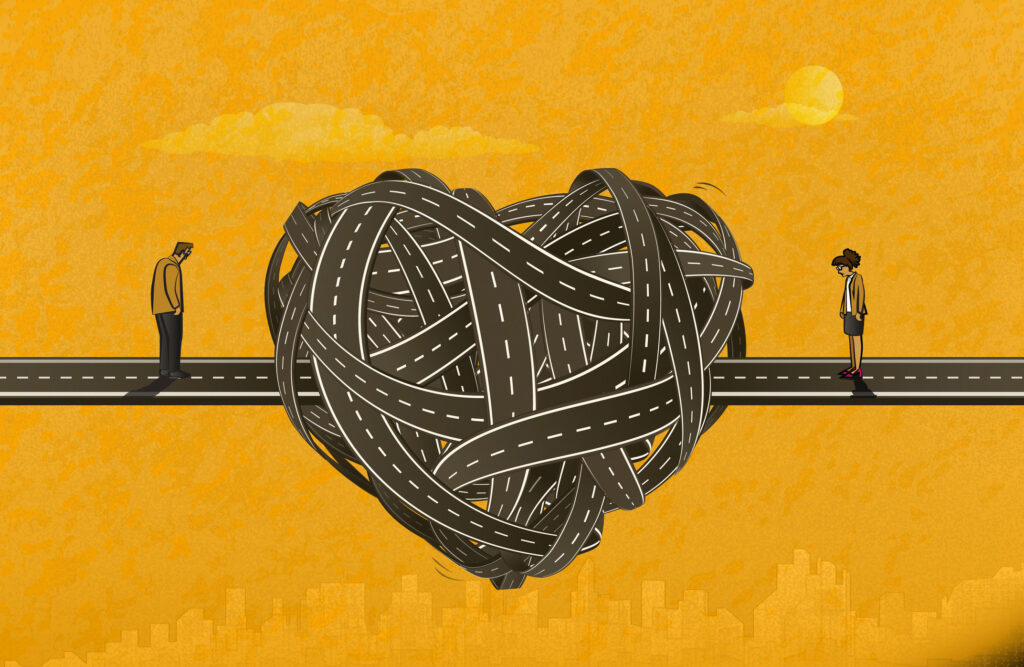
Four Dimensions of Psychedelic Love
Towards a focus on the nature of love, we first propose four categories to track the directions of love in the context of psychedelic experiences:
1. Giving: Love Felt for Others
Oh, Master, grant that I may never seek
So much to be consoled as to console.
To be understood as to understand.
To be loved as to love with all my soul…
– Peace Prayer of St. Francis (Anonymous, 1915)
For many, love is most commonly recognized as something one feels towards others. Our most altruistic, creative, and courageous actions often come from wanting to serve, protect, and delight another. Psychedelic medicine magnifies and makes vivid these motivations that color our lives. Realizing the depth with which we love others can be a healing revelation, a remembrance of a most core value:
Late in the ceremony, I found myself dictating to myself a long letter to my best friend. We’d always been there for each other and called each other “brother” often. But there was always a certain distance I could not measure between us, some sadness I could not speak to. I had always wanted to say clearly: “I love you.” I filled the letter with our inside jokes, recalled the times he very literally saved my life. The letter seemed to go on forever, and it was all I could do to stay in my seat, not retrieve my phone, and start texting this pure declaration of love. I was still for a long time, feeling inside, realizing that the distance was no more. – anonymous participant
2. Receiving: Love Felt from Others, Nature, or Spirit
And did you get what
you wanted from this life, even so?
I did.
And what did you want?
To call myself beloved, to feel myself
beloved on the earth.
– Raymond Carver (1989)
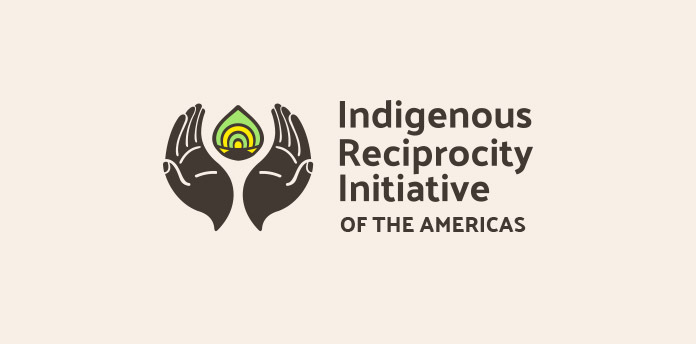
Discover Indigenous Reciprocity Iniciative of the Americas
For others, transformative healing emerges from the realization of being loved, in particular, those with a history of developmental trauma. People report experiencing this discovery with reactions ranging from relief to delight. In an age marked by material and relational scarcity, feeling loved can bring relief to emotional and spiritual drought:
I was on the precipice of giving up or not being able to handle any more. When it felt like I was about to fall, there was a reminder from Spirit. “You are not alone. Surrender and trust this process. I am with you.” When experiencing this love, which I believed to be from Spirit, I could see everything in my life through the lens of love. Forgiveness for myself and others felt natural; my value and preciousness felt natural; my love of others flowed so freely, even to those who have hurt me. I was free. – anonymous participant
3. Nourishing: Experiences of Self-Love
‘i love myself.’
the
quietest.
simplest.
most
powerful.
revolution.
ever.
– Nayyirah Waheed (2013)
With self-love, one recovers the capacity to say “yes” or “no,” to live a life of alignment, to engage in self-care practices as the needs emerge organically.
Psychedelic medicine is known for increasing tolerance of distress, awakening interest in new experiences, and cultivating an attitude of survivorship: elements of resilience essential to healing and growth. Crucial as they are, these experiences do not capture the affectionor care that one may find within oneself, for oneself. With self-love, one recovers the capacity to say “yes” or “no,” to live a life of alignment, to engage in self-care practices as the needs emerge organically. One woman described the following during an MDMA experience:
I noticed in front of me was an art structure with broken glass pieced back together. I stood in front of it, looking into my reflection. You are lovable, you are a good human being, your heart is full of so much love to give. You are worthy… Rise up and love yourself. You are beautiful. And from that moment on, I have vowed to dedicate my life to continuing to love myself and to find a way to help others find their path to self-love. – anonymous participant
4. Becoming: Experiences of Being Love
As you dissolve into love,
your ego fades.
You’re not thinking about loving;
you’re just being love,
Radiating like the sun.
– (Dass & Das, 2010)
The Cosmic Game, by Stanislav Grof, catalogues the ways those who take medicine have the opportunity to experience a state that extends beyond themselves, dissolving boundaries between self and other towards unexpected or even unimagined perfection. From these astonishing perspectives, Grof (1998) notes: profound metaphysical insights into the nature of reality actually engender reverence toward all sentient beings and responsible engagement in the process of life (p. 120). Indeed, some psychedelic journeys seem to lead to transpersonal experiences of being compassion—as an active verb—and reverence for all, bringing an unfamiliar clarity to the writings of practitioners of spiritual arts.
It felt like an energy emanating out from the center of my being which was kind of in my diaphragm…a little bit lower than my diaphragm area, and it felt like this energy of warm light… kind of burst out of me in every direction. It was sharp. It wasn’t soft and it wasn’t slow…. it was like ka-pow! And it almost built up to a point where it needed to be released… in my awareness, I just had this experience of fractal shards emanating in every direction, and each shard was love! – anonymous participant
Love as Medicine
In addition to psychedelic-occasioned experiences of love, it is critical to speak of the love that flows from the therapist to the client. As we see in the reality-defining years of infancy and early childhood, we must be loved in order to love. As therapy has proven, we can be loved—even by relative strangers—into love, into wholeness. We find this embedded in the role of therapist in the remarkable results yielded by the Multidisciplinary Association for Psychedelics Studies’ trials of MDMA-assisted therapy for the treatment of PTSD. These research studies are breaking down the taboo-fueled barriers that have longed plagued clinicians in the helping professions. Marcela Ot’alora G, MAPS trainer, supervisor, and researcher, notes: “To love is to establish a space designated fully for listening to another’s experience with an open heart. It is through this listening that empathy is nourished and felt. Healing comes out of this space. MDMA-assisted psychotherapy lends itself to this opportunity” (M. Ot’alora G, personal communication, February 12, 2021). Bruce Poulter, also a MAPS trainer, supervisor, and researcher, adds: “Love is the core element of my work, meaning curiosity, compassion, and understanding, yielding results beyond my imagination” (B. Poulter, personal communication, February 14, 2021).
The psychedelic renaissance is an opportunity to envision psychotherapy as a relationship that can bear explicit and deliberate expressions of love in all forms; a force that heals, and that strengthens our ability to choose one another against our individual instincts, social programming, and imperatives.
Sign up to our Newsletter:
The Final Frontier
The psychedelic renaissance is an opportunity to envision psychotherapy as a relationship that can bear explicit and deliberate expressions of love in all forms; a force that heals, and that strengthens our ability to choose one another against our individual instincts, social programming, and imperatives. Colleague Joe Tafur offers closing comments upon this frontier as we explore it, including the need for profound inquiry about where love ultimately leads:
Love seems to be considered by many to be an unprofessional topic, which in healthcare I’m afraid is a weighty ignorance. It seems that “unconditional positive regard” has been useful, but there is room to say more. As we become more sophisticated as a culture, we will have to deal with this very vulnerable topic more deeply in medicine and in research. And, if metaphysics are uncomfortable, then I am afraid things will probably become more uncomfortable. (J. Tafur, personal communication, September 28, 2020).
Let’s get uncomfortable.
Art by Mariom Luna.
References
Anonymous. (1915). Peace prayer of St. Francis. https://catholicfire.blogspot.com/2013/10/the-story-behind-peace-prayer-of-st.html
Carver, R. (1994). Late fragment. A new path to the waterfall. New York City, NY: Atlantic Monthly Press.
Dass, R. & Das. R. (2010). Be love now. San Francisco, CA: Harper One..
Grof, S. (1998). The cosmic game: Explorations of the frontiers of human consciousness. Albany, NY: SUNY Press.
Pollan, M. (2019). How to change your mind: What the new science of psychedelics teaches us about consciousness, dying, addiction, depression, and transcendence. New York City, NY: Penguin Books.
Waheed, N. (2013). Salt. Scott’s Valley, CA: CreateSpace Independent Publishing Platform
Wolfe, A. S., Miller, C., & O’Donnell, H. (1999). On the enduring popularity of Creams’ “Sunshine of Your Love”: Sonic synecdoche of the “psychedelic 60s.” Popular Music, 18(2), 259–276.
Take a minute to browse our stock:
Did you enjoy reading this article?
Please support Chacruna's work by donating to us. We are an independent organization and we offer free education and advocacy for psychedelic plant medicines. We are a team of dedicated volunteers!
Can you help Chacruna advance cultural understanding around these substances?











